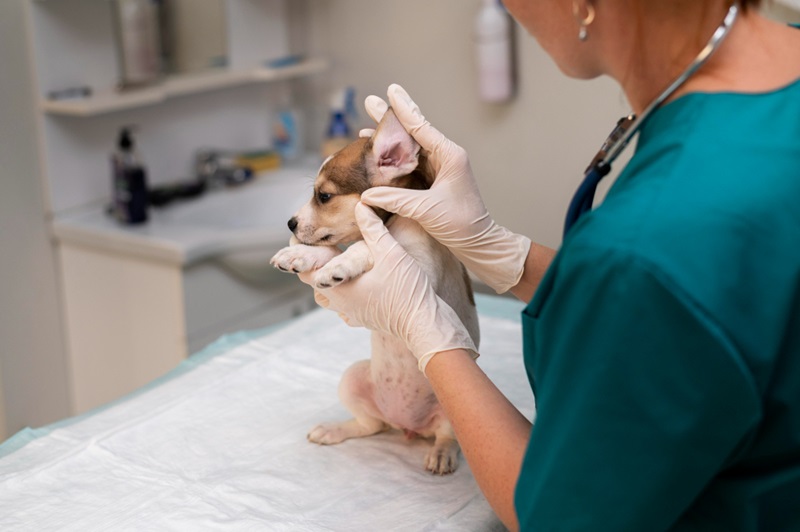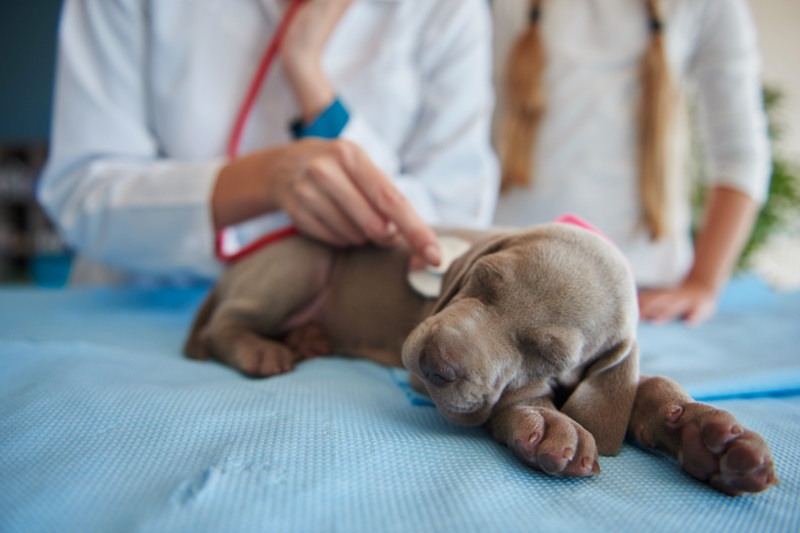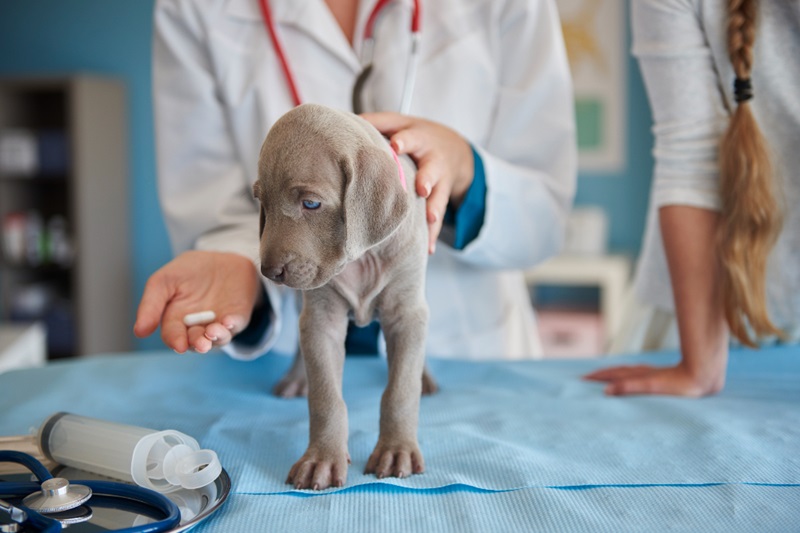Parvo is a deadly virus that poses a significant threat to puppies. This highly contagious disease can spread quickly and have devastating consequences. Protecting your puppy from parvo starts with understanding the risks and taking preventive measures. Whether it’s proper vaccination or maintaining hygiene, every step matters. As a responsible pet owner, your goal is to provide a safe and healthy environment for your furry companion. Learning how to shield your puppy from this threat could save their life. This guide explains practical ways to keep your puppy safe and reduce their risk of contracting parvo.
What Is Parvo and Why Is It Dangerous?
Parvovirus is a highly contagious disease that affects dogs, especially puppies. It attacks rapidly dividing cells, particularly in the intestinal lining and bone marrow.
- Symptoms of Parvo: Puppies with parvo experience vomiting, diarrhea (often bloody), lethargy, and loss of appetite.
- How It Spreads: Parvo spreads through direct contact with an infected dog or contaminated surfaces like food bowls, clothing, or even shoes.
- Why It’s Deadly: Parvo leads to severe dehydration and weakened immunity, which can quickly become fatal without timely treatment.
Vaccination: The Most Effective Shield
Vaccination is the strongest line of defense against parvo. Puppies require a series of shots to build immunity.
- Vaccination Schedule: Start the first dose at six to eight weeks of age. Follow up with booster shots every three to four weeks until 16 weeks.
- Annual Boosters: Regular booster shots keep the immunity strong throughout your dog’s life.
- Vet Visits: Always consult your vet about the best vaccination plan for your puppy.

Maintaining Hygiene in Your Puppy’s Environment
Parvo can linger in the environment for months. Cleanliness is vital to prevent exposure.
- Disinfecting Surfaces: Use bleach solutions to disinfect areas your puppy frequents. Parvo can survive on surfaces like floors and crates.
- Clean Bowls and Toys: Wash food and water bowls daily. Clean toys and bedding frequently.
- Limit Outdoor Exposure: Avoid parks or areas where unvaccinated dogs might roam until your puppy is fully vaccinated.
Avoiding Contact with Unvaccinated Dogs
Socialization is important but should be done cautiously.
- Controlled Interaction: Only allow your puppy to interact with vaccinated dogs.
- Quarantine Period: If you bring a new dog home, ensure they are vaccinated before introducing them to your puppy.
- Supervised Walks: Keep walks short and confined to areas you know are safe.
Nutrition and Hydration for a Strong Immune System
A healthy puppy is more likely to fight off infections, including parvo.
- Balanced Diet: Feed your puppy high-quality puppy food with the right nutrients.
- Hydration: Ensure they have access to clean water at all times.
- Supplements: Consult your vet about adding supplements that boost immunity.
Recognizing Early Signs of Parvo
Early detection can save your puppy’s life.
- Behavioral Changes: Watch for sudden lethargy or loss of appetite.
- Digestive Issues: Take note of any vomiting or diarrhea, especially if it’s bloody.
- Immediate Vet Care: Seek veterinary help at the first sign of symptoms to improve survival chances.
Training and Safe Socialization
Training your puppy not to eat or lick random objects outdoors reduces their risk of exposure.
- Leash Training: Teach your puppy to stay close and avoid unknown surfaces or objects.
- Positive Reinforcement: Reward them for safe behavior during walks.
- Controlled Playdates: Organize playdates with vaccinated puppies in clean environments.
Parvo Prevention for Multi-Pet Households
If you own multiple dogs, the risk of parvo spreading increases.
- Separate Feeding Areas: Use separate bowls for each dog to prevent cross-contamination.
- Regular Health Checks: Keep all pets up to date on vaccinations and vet visits.
- Isolate Sick Dogs: If one dog shows signs of illness, isolate them immediately to protect others.

FAQ: Protecting Puppies from Parvo
Q: How long should I wait before taking my puppy outside?
A: Wait until your puppy has completed their vaccination series, typically around 16 weeks of age.
Q: Can adult dogs get parvo?
A: Yes, but they are less susceptible than puppies. Adult dogs with up-to-date vaccinations are better protected.
Q: How do I know if my puppy’s environment is safe?
A: Ensure all surfaces are disinfected regularly, and avoid areas frequented by unvaccinated dogs.
Q: Can parvo be transmitted by humans?
A: Humans can carry the virus on their clothes, hands, or shoes. Always wash hands and change clothing after exposure to unknown dogs.
Q: What should I do if my puppy shows symptoms of parvo?
A: Contact your veterinarian immediately. Early treatment improves the chances of recovery.
A Proactive Approach Saves Lives
Protecting your puppy from parvo requires vigilance and effort. Vaccinations, hygiene, proper nutrition, and controlled socialization are key steps to safeguard their health. By staying informed and proactive, you can minimize the risks and ensure your puppy grows into a healthy, happy dog. Take preventive measures seriously, as they can make all the difference in keeping your puppy safe from this dangerous virus.

